Finding a reliable CNC machine manufacturer can feel overwhelming. You need top quality and precision for your projects, but the market is full of options. Choosing poorly can mean wasted time, money, and parts that don’t meet your standards, putting your entire project at risk. But don’t worry, there are excellent manufacturers out there, and I’m here to help you navigate the choices.
Yes, several reputable CNC machine manufacturers exist. Top brands like Haas Automation, DMG Mori, Yamazaki Mazak, Okuma, and Makino are known for their quality, reliability, and innovation in CNC technology. They offer a wide range of machines to suit various applications and precision requirements, ensuring you can find a good fit.
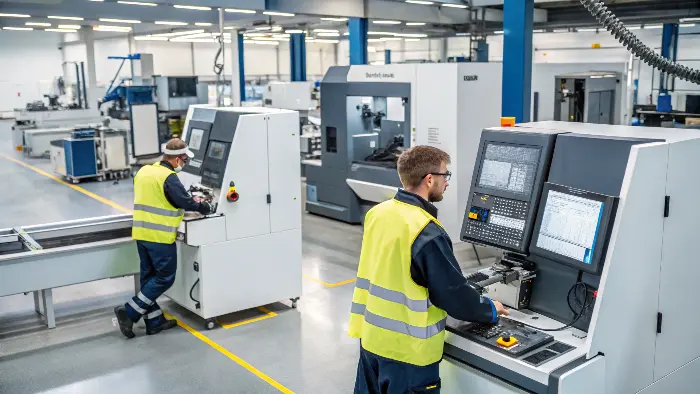
Choosing the right CNC machine is a big decision. It directly impacts your production quality, how efficient you are, and, in the end, your business’s success. I’ve spent many years working with different machines and suppliers, both in the shop and sourcing for global clients. This experience has taught me a lot about what makes a manufacturer stand out. So, let’s dive deeper into what you should look for and discuss some specific names in the industry. We want to make sure you have the information to make the best choice.
What company makes the best CNC machines?
Everyone wants to find the "best" CNC machine, but what "best" means can change from person to person. It’s easy to get confused trying to figure out which brand truly leads the pack. If you pick a machine based on hype instead of your specific needs, you might overspend or end up with equipment that isn’t a good fit for your work. So, let’s clarify what "best" really means when we talk about CNC machining and look at companies that consistently deliver excellent results.
Defining the "best" CNC machine company really depends on what you need it for, like your specific application, how much you can spend, and the level of precision you require. However, companies such as DMG Mori, Yamazaki Mazak, and Okuma are often mentioned for their high-quality, innovative, and reliable CNC machines that serve many different industries.
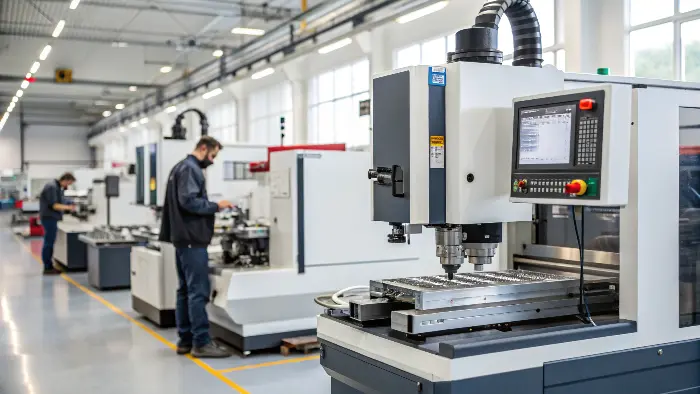
The term "best" is quite subjective in the world of CNC machines. What works perfectly for a small job shop focusing on prototypes might not be the ideal solution for a large aerospace company manufacturing complex components in high volumes. To determine the "best" for you, we need to consider several factors. For example, what kind of machining will you do? Milling, turning, or more complex 5-axis work? What materials will you be working with – metals, plastics, or composites? Your production volume also matters, whether it’s for one-off prototypes, small batches, or mass production. And, of course, your budget plays a significant role, as machines can range from entry-level to very high-end.
Companies like DMG Mori are well-known for their high-technology machines, especially in 5-axis and complex machining. I remember a project where we needed to produce a medical device with extremely intricate geometries. A DMG Mori machine was the only one that could handle the job with the precision we needed. Yamazaki Mazak offers a very wide range of machines and is particularly praised for its user-friendly Mazatrol controls. They are strong in both milling and turning, and their multi-tasking machines are truly impressive. Okuma is unique because they build almost everything in-house – the machine, drive, motor, encoders, spindle, and their OSP control system. This integrated approach often leads to superior performance and reliability. I’ve seen Okuma machines operate flawlessly for decades with just regular maintenance. While Haas Automation might not always compete at the very highest end for ultra-precision, they offer fantastic value, are easy to use, and have excellent service, especially in North America. They’ve made CNC technology accessible to many.
Here’s a simple table to compare some key strengths:
| Feature | DMG Mori | Yamazaki Mazak | Okuma | Haas Automation |
|---|---|---|---|---|
| Speciality | High-tech, 5-axis | User-friendly, Multi-tasking | Integrated systems, Reliability | Value, Ease of Use |
| Price Range | High | Mid to High | Mid to High | Entry to Mid |
| Target User | Advanced manufacturing | Broad range, ease of use | Demanding applications | General purpose, Shops |
Ultimately, the "best" machine is the one that best fits your specific requirements and helps you achieve your manufacturing goals efficiently and reliably.
What is the most accurate CNC machine?
You need your parts to be extremely precise. But how can you find a machine that will consistently deliver those tight tolerances you require? If your machine isn’t accurate, you’ll end up with scrapped parts, problems during assembly, and projects that fail. This is a nightmare scenario for any engineer, like Alex, who depends on precision. So, let’s look at what defines accuracy in CNC machines and which manufacturers are known for excelling in this critical area.
The "most accurate" CNC machine typically comes from manufacturers specializing in high-precision equipment, such as Makino, Yasda, or Kern Microtechnik. True accuracy depends on the machine’s build quality, thermal stability, advanced control systems, and the specific model. These machines can often achieve sub-micron precision, which is incredibly small.
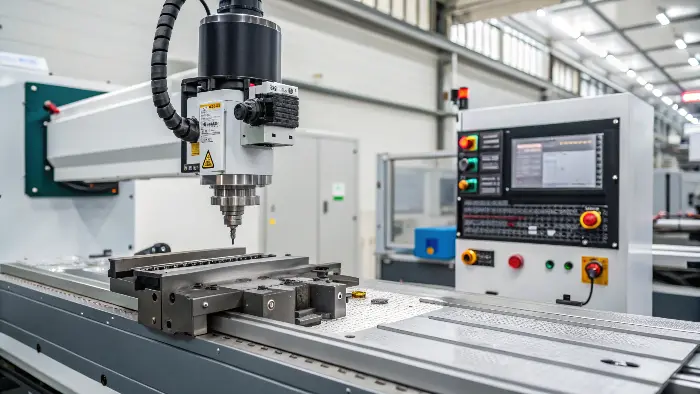
Accuracy in CNC machining isn’t just a single number; it’s a combination of several important factors. Positioning accuracy refers to how precisely the machine can move its tool to a commanded point. Repeatability is about how consistently the machine can return to that same point over and over again. Thermal stability is also crucial. Temperature changes in the workshop or within the machine itself can cause materials to expand or contract, affecting precision. High-accuracy machines have sophisticated cooling systems for the spindle, ballscrews, and even the machine structure to counteract these effects. I once worked in a shop that didn’t have good climate control. We noticed variations in part dimensions throughout the day, especially on tight tolerance jobs. This problem was only solved when we invested in a machine with better thermal compensation features.
Machine rigidity is another key element. A stiff, robust machine structure minimizes vibrations and deflections under cutting loads, which directly contributes to accuracy. The control system also plays a vital role, using advanced algorithms for motion control and error compensation.
Manufacturers like Makino are renowned for their high-speed, high-accuracy machining centers, particularly favored in the die and mold industry. Their thermal compensation technology is considered top-notch. Yasda is often placed at the pinnacle of precision. They focus on jig borers and ultra-precise machining centers, building their machines with incredible attention to detail, often involving hand-scraping of guiding surfaces for perfect flatness and alignment. For applications requiring micro-milling or tolerances in the single-digit micron or even sub-micron range, Kern Microtechnik is a name to know. Okuma also produces very accurate machines, especially their higher-end models, thanks in part to their philosophy of designing and building all major components in-house.
It’s important to match the machine’s accuracy level to your actual needs. Chasing the absolute "most accurate" machine can be very expensive if your parts don’t truly require that level of precision. For an engineer like Alex, who typically needs tolerances around ±0.01mm, many good quality machines from Haas, Mazak, Okuma, and DMG Mori can achieve this reliably. If even tighter tolerances are consistently required, then looking at brands like Makino or Yasda becomes more relevant.
Here’s a look at factors affecting CNC accuracy:
| Factor | Description | Importance for High Accuracy |
|---|---|---|
| Machine Build | Quality of components (bearings, ballscrews), assembly precision, rigidity. | Very High |
| Thermal Management | Cooling systems for spindle, ballscrews, machine frame; thermal sensors. | Very High |
| Control System | High-resolution encoders, advanced feedback loops, error compensation. | High |
| Tooling & Workholding | Precision tool holders, balanced tools, rigid workholding fixtures. | High |
| Operating Environment | Stable ambient temperature, low vibration, clean power supply. | Medium to High |
Are Chinese CNC machines any good?
You’ve probably heard about CNC machines made in China, and they often come with lower price tags. This makes you wonder if they are reliable enough for your critical parts. The fear of poor quality, a lack of good customer support, or inconsistent performance can make you hesitant. You might worry that you’re risking too much, even if it means potentially missing out on cost savings. So, let’s take an honest and balanced look at the current state of Chinese CNC machines and see where they fit into the global market.
Chinese CNC machines have improved a lot in recent years. While some lower-end models might not have the same precision or last as long as top Japanese or German brands, many Chinese manufacturers now produce good quality, reliable machines. These are especially good for general-purpose machining and can offer excellent value for the money.
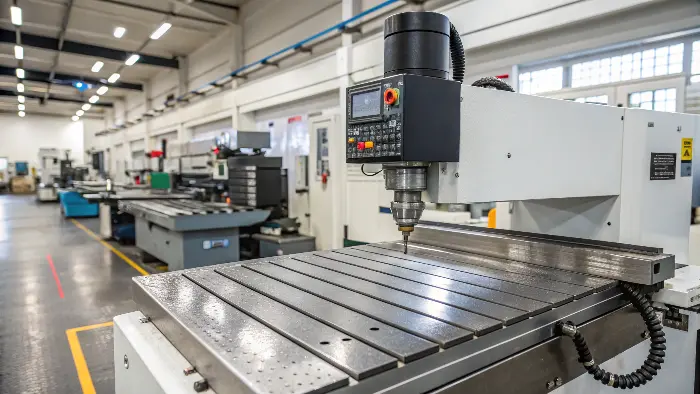
The world of Chinese CNC machines is quite diverse; it’s not a simple "yes, they are good" or "no, they are bad." Years ago, the general reputation was often for lower quality, but things have changed very quickly. Today, some Chinese companies are producing machines that can compete on a global scale. Often, these higher-end Chinese machines use key components like controllers, spindles, and bearings from well-established international brands such as Fanuc, Siemens, or NSK. This helps ensure reliability and performance.
In the mid-range, many Chinese brands offer strong value. Machines from companies like Haitian, Shenyang Machine Tool Group (SMTCL), or Dalian Machine Tool Group (DMTG) can be very capable for a wide variety of applications. I’ve personally seen some impressive results from these machines when used for general engineering parts. Of course, there’s still a large market for very inexpensive, lower-end or hobbyist machines from China. In this segment, quality can be a gamble, and it’s very important to do thorough research before buying.
If you are considering a Chinese CNC machine, look for brands with a solid track record and positive reviews. Check what kind of components are used – seeing names like Fanuc or Siemens for the control system is usually a good sign. Also, think about local support and the availability of spare parts. This is critical. If you are buying from outside China, make sure there’s a reliable agent or support network in your region. At QuickCNCs, we work with many excellent machining suppliers in China. The quality of their machining services is consistently high, partly because these suppliers invest in good quality machines – whether those are imported or high-quality domestic Chinese brands. This itself shows that the capability and quality are definitely there.
For an engineer like Alex, if his company were considering buying a CNC machine, thorough research into specific Chinese brands and models would be essential. If he’s outsourcing parts to a Chinese supplier, like many of our clients do through QuickCNCs, the focus shifts more to the supplier’s quality control systems and the specific machines they use, rather than Alex needing to buy a Chinese machine himself.
Here’s a summary of potential pros and cons:
| Pros | Cons |
|---|---|
| Often lower initial purchase cost | Quality can vary a lot, especially at the very low end |
| Technology and quality are improving | After-sales service and support might be less robust in some regions |
| A wide range of machine options available | Resale value might be lower than established global brands |
| Can be very good for general purpose machining | May not match the extreme precision of top-tier Japanese or German brands |
Who is the largest manufacturer of CNC machines?
Knowing who the biggest players are in the CNC machine industry can give you a sense of market stability and their global reach. But who truly dominates when it comes to the sheer volume of machines produced or overall revenue? While being the "largest" doesn’t automatically mean they are the "best" for your specific needs, it can indicate that a company has significant resources for research and development, as well as a widespread support network. So, let’s try to identify some of the largest CNC machine manufacturers around the world.
Identifying the single "largest" CNC manufacturer can be tricky because it depends on how you measure it – by the number of units sold or by total revenue. However, companies like Haas Automation (often cited for units sold), DMG Mori, Yamazaki Mazak, and Okuma are consistently among the largest and most influential CNC machine manufacturers globally.
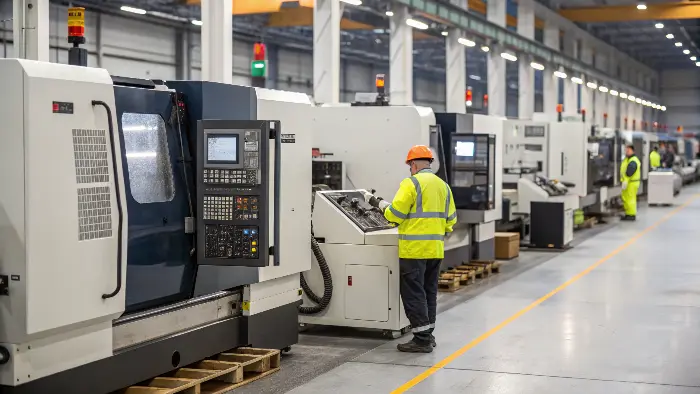
The term "largest" can be measured in a few different ways. If we look at unit sales, Haas Automation often claims to be the largest manufacturer, especially in terms of the number of machines sold in the Western Hemisphere. Their business model focuses on producing affordable, reliable machines in high volume, making CNC technology accessible to a broad customer base. I’ve visited countless machine shops over the years, and Haas machines are incredibly common, particularly for entry-level to mid-range machining needs.
If we consider revenue, companies like DMG Mori and Yamazaki Mazak are typically at the top. This is because they produce a wide range of machines, including many high-value, technologically advanced models, which naturally lead to higher overall revenue. DMG Mori is the result of a merger between German (Deckel Maho Gildemeister) and Japanese (Mori Seiki) giants, giving them a massive global presence and an extremely broad product portfolio. This includes everything from universal milling machines to highly complex turn-mill centers and even additive manufacturing solutions. Yamazaki Mazak is another Japanese powerhouse with a significant global footprint. They are known for their extensive range of machines and continuous innovation, especially in multi-tasking machines and their user-friendly CNC controls.
Okuma, also a major Japanese player, is significant in terms of both quality and market presence. They are highly respected for building robust and reliable machines, featuring their own integrated control systems. In the past, Shenyang Machine Tool Group (SMTCL) from China has also been reported as one of the largest by volume at certain points, though their market penetration for high-end applications outside of Asia might be less extensive compared to the other manufacturers mentioned.
Why does the size of the manufacturer matter? Larger companies often have more resources to invest in research and development, leading to new technologies and machine capabilities. They also tend to have more extensive global support networks, meaning better service and parts availability worldwide. Furthermore, a large, established company is generally seen as a more stable long-term partner. However, it’s crucial not to choose a machine just because the manufacturer is the largest. The "best" machine for you is always the one that best fits your specific technical requirements, application needs, and budget.
Here’s a quick look at some large CNC manufacturers and what they are known for:
| Manufacturer | Known For | Primary Metric often cited for "Large" |
|---|---|---|
| Haas Automation | High volume sales, affordability, strong US market presence | Number of Units Sold |
| DMG Mori | High-tech solutions, broad product portfolio, extensive global presence | Revenue, Global Market Share |
| Yamazaki Mazak | Innovation, multi-tasking machines, user-friendliness, global reach | Revenue, Global Market Share |
| Okuma | High reliability, integrated systems (machine and control) | Revenue, Reputation for Quality |
Conclusion
Finding good CNC machine manufacturers is really important for your work. Top brands like Haas, DMG Mori, Mazak, and Okuma consistently offer quality and reliability. Always think about your specific needs for accuracy and the type of applications you’ll be running. Chinese brands are also getting better and can offer good value. Doing your research is key to making the best choice.
